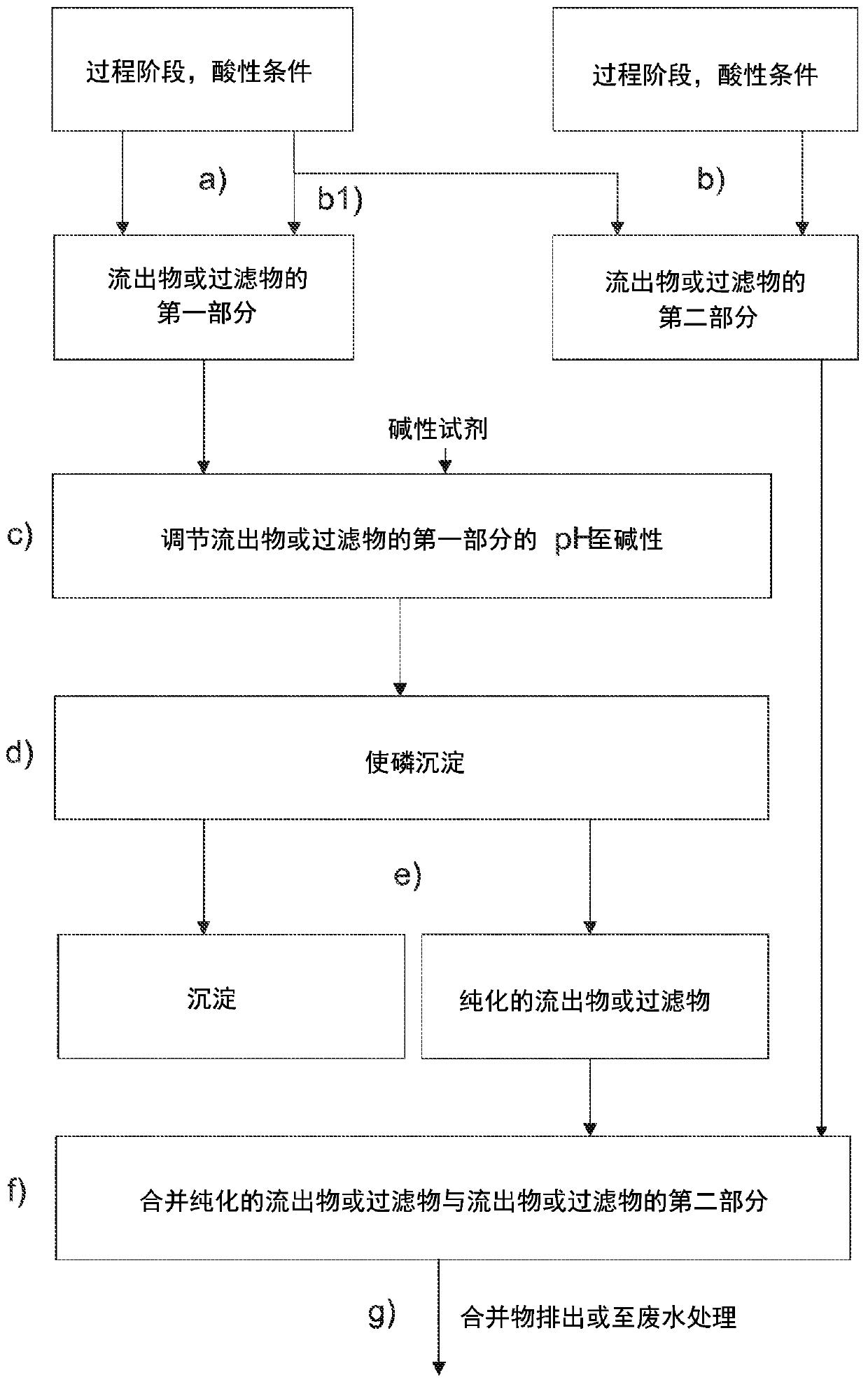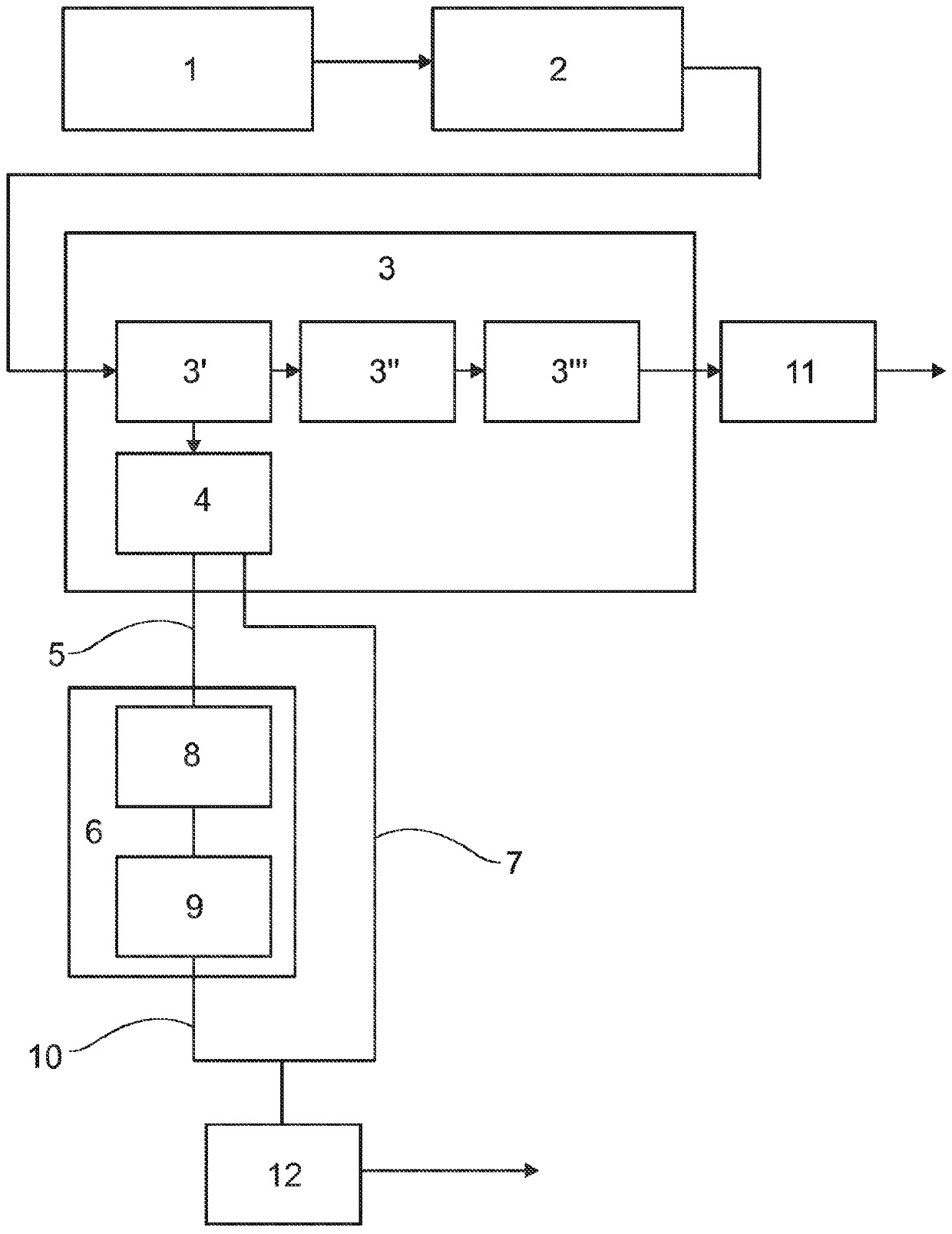Method and system for reducing phosphorus in effluent or filtrate
A technology for effluent and filtrate, applied in chemical instruments and methods, neutralization of water/sewage treatment, water pollutants, etc., can solve the problems of complex operation, high investment and operating cost
- Summary
- Abstract
- Description
- Claims
- Application Information
AI Technical Summary
Problems solved by technology
Method used
Image
Examples
Embodiment 1
[0152] Example 1 - Phosphorus removal from acid bleached filtrate
[0153] Acid bleached filtrate (A / D1 filtrate) was obtained from a kraft pulp mill. 9m 3 / ADt Filtration flow is divided into two parts, the first part is 2m 3 / ADt and the second part 7m 3 / ADt.
[0154] The first part uses calcium hydroxide (Ca(OH) 2 ) aqueous solution treatment. Calcium hydroxide was used at a concentration of 1.84 g / l or 20 g / l. The pH of the first portion was adjusted to 9.0, 9.2, 9.5, 9.8 or 10.0 by adding aqueous calcium hydroxide solution. The precipitate was removed by decantation 2 hours after adjusting the pH to basic. After removing the precipitate, the purified filtrate obtained from the first part is combined with the second part and sent to the wastewater treatment plant.
[0155] Samples were taken from the first portion of the filtrate before adding the calcium hydroxide solution and after removing the precipitate. The total phosphorus content of the samples was determ...
PUM
 Login to View More
Login to View More Abstract
Description
Claims
Application Information
 Login to View More
Login to View More - R&D
- Intellectual Property
- Life Sciences
- Materials
- Tech Scout
- Unparalleled Data Quality
- Higher Quality Content
- 60% Fewer Hallucinations
Browse by: Latest US Patents, China's latest patents, Technical Efficacy Thesaurus, Application Domain, Technology Topic, Popular Technical Reports.
© 2025 PatSnap. All rights reserved.Legal|Privacy policy|Modern Slavery Act Transparency Statement|Sitemap|About US| Contact US: help@patsnap.com


